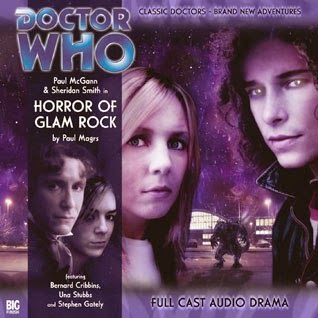A red light on the TARDIS console has turned on, but the Doctor doesn't recognize it. This same scene plays out across five TARDIS and brings the Doctor in contact with himself. The primary team up occurs between Paul McGann and Tom Baker, the two extreme ends of the range, and they make a beautiful pair. Baker compliment's McGann's Victorian jacket and McGann compliments Baker's scarf. Their teaming is very reminiscent of the Smith/Tennant coupling that the BBC was putting together at the same time.
I do have a bias for McGann, but each of the other Doctors is given his due, and gets a few good moments. It's actually Peter Davison's Doctor who gets most of the key plot, as the Doctors discover their TARDIS have been pulled towards the same point in space-time (a familiar junkyard in 1963).
The companions are overshadowed (as usual) by the multi-Doctor scenes, but Ace manages to get a choice description across as she lists off all the Doctors with sarcastic nicknames (including Joseph and his Amazing Technicolor Dreamcoat, no points for guessing who she means).
The tale is just enough timey-wimey to make it feel like more than just an excuse to get all the actors in the same story, but not so complicated as to get lost in expository dialogue. It's also not as absurdly long as the 40th was, which means I don't have to feel bad recommending it for a single-sitting.






.jpg)
.jpg)




.jpg)
.jpg)